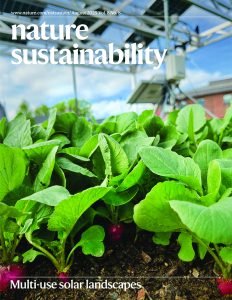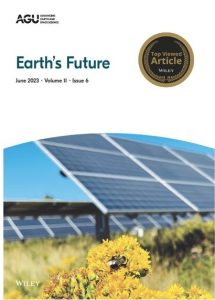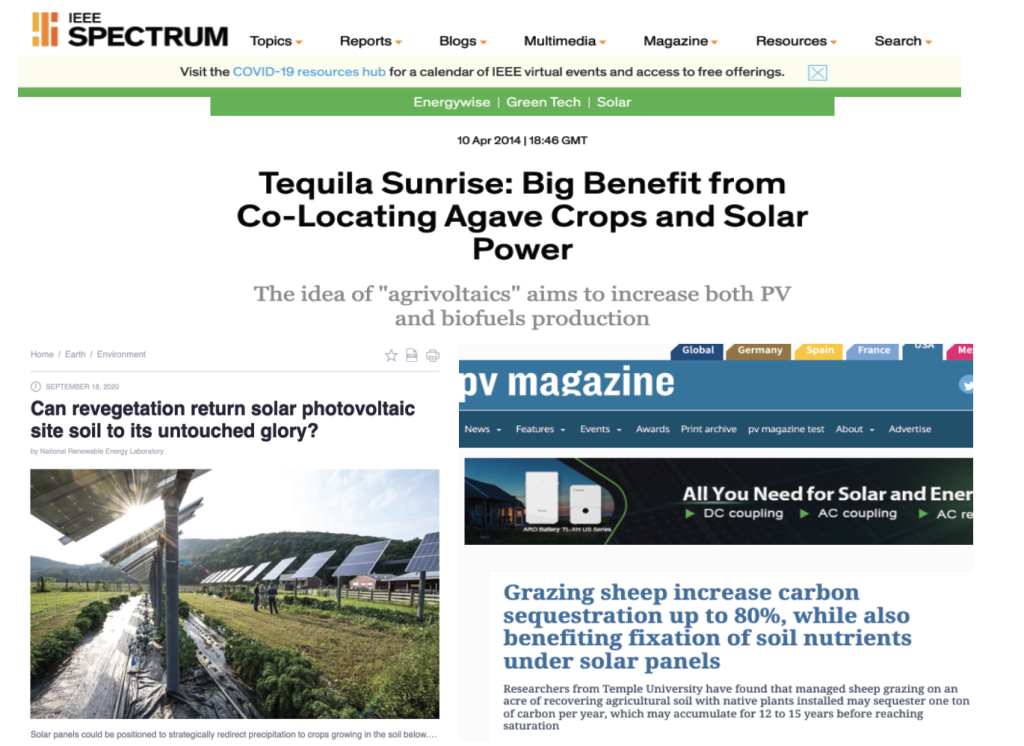Research Interests
- Ecohydrology• Soil erosion • Land Degradation • Water – Energy – Food Nexus • Agrivoltaics
I am a broadly trained environmental scientist interested in understanding surface processes in terrestrial ecosystems, in the context of land degradation induced by climate change and human activities. My research areas include: (1) Ecohydrological feedbacks accompanying land use changes and their impact on soil and water degradation (2) Environmental impacts (on land, water resources and food security) of renewable energy development and opportunities to colocate agriculture with energy production. I use a variety of research tools to address my research questions including manipulative field experiments, laboratory experiments, data analysis, and modeling.
Solar energy- Agriculture colocation (Agrivoltaics) : Over the past decade, we studied the co-location of solar energy with crops/biofuels, grazing and/or pollinator-friendly native plants at multiple sites around the world, and the highlighted the environmental and socio-economic co-benefits. Learn more about our work: Ravi et al 2012, 2014, 2015, 2016; Choi et al, 2020, 2021, 2023, 2024; Towner et al 2021; Macknick et al., 2022; Merheb et al., 2025)
The goal is to lower the environmental and economic cost of solar PV development by providing novel analysis methodologies and foundational field data on solar PV – agriculture colocation approaches or “Agrivoltaics” and to facilitate rapid deployment. (Funded by NSF CAREER/ DOE InSPIRE I, II and III)
I am interested also, in the opportunities to incorporate micro-scale renewable (solar) energy into existing cropping systems in the developing world, where crop-energy colocation may provide several co-benefits (rural electrification, employment generation, energy for processing agricultural commodities locally). (Funded by Department of Energy/Alliance for Sustainable Energy LLC)
Pathways of land degradation: Pathways of ecosystem degradation in croplands and rangelands, involving changes in connected pathways (for sediment transport, fire) in the landscape, and the role of shrub encroachment and exotic grass invasions in inducing grassland/rangeland degradation by altering these pathways. (NSF)
Soil erosion in changing landscapes: Effects of hydro-climatic variables (e.g. air humidity, soil moisture), vegetation shifts, salinization, and management practices (e.g. fire, grazing, tillage, biochar amendment) on wind erosion and dust emissions, using a combination of wind tunnel experiments, field monitoring and modeling. This investigation will provide important information for the estimation and modeling of soil erosion from agricultural areas.
Hydrological and aeolian controls on vegetation patterns: I am interested in understanding the hydrological and aeolian controls on vegetation patterns and how vegetation patterns, in turn, affect these processes.







You must be logged in to post a comment.